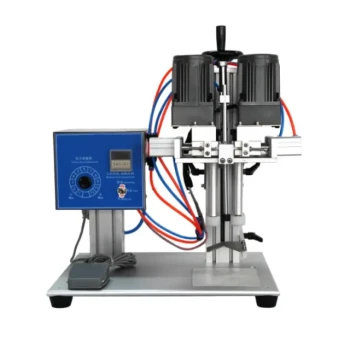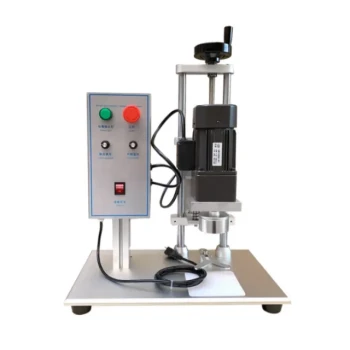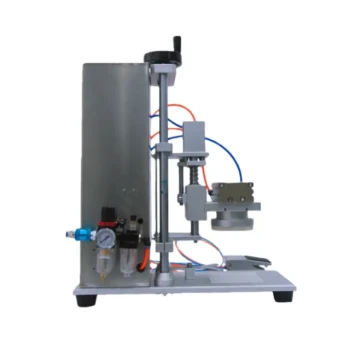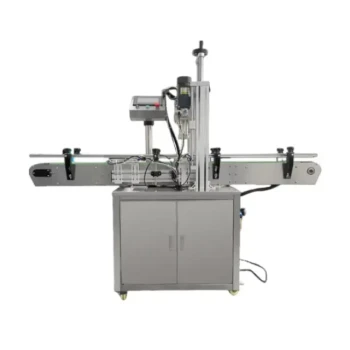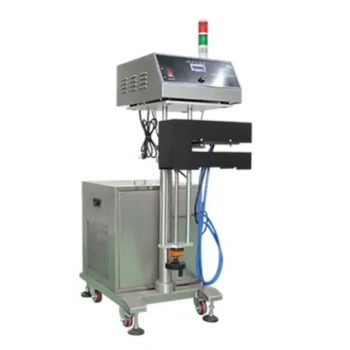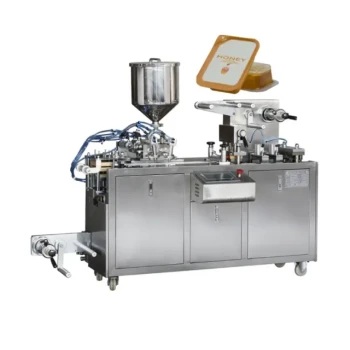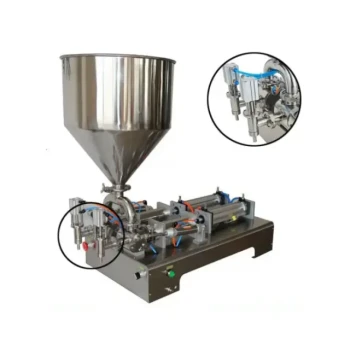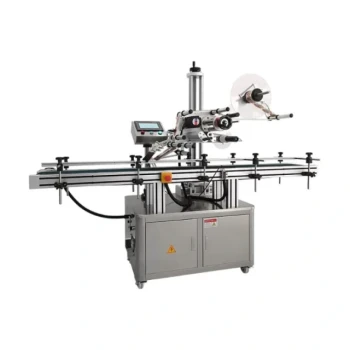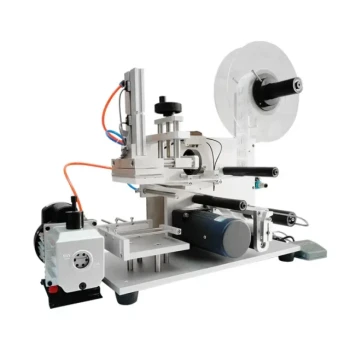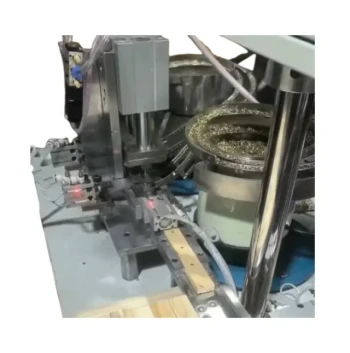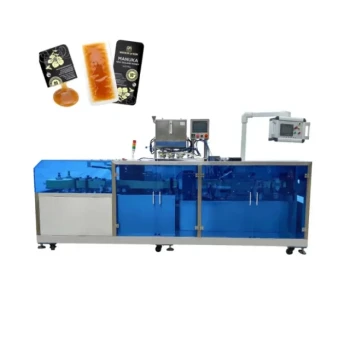In short, capping machines can handle a vast range of closure types, including screw caps, press-on (snap) caps, corks, and roll-on pilfer-proof (ROPP) caps. The specific type of machine you need is determined not just by the cap, but by the mechanism required to create a secure and reliable seal on your container.
Choosing the right capping machine is less about the machine itself and more about first understanding the specific closure system your product requires. The cap type, container material, and desired production speed will dictate the ideal technology for your needs.
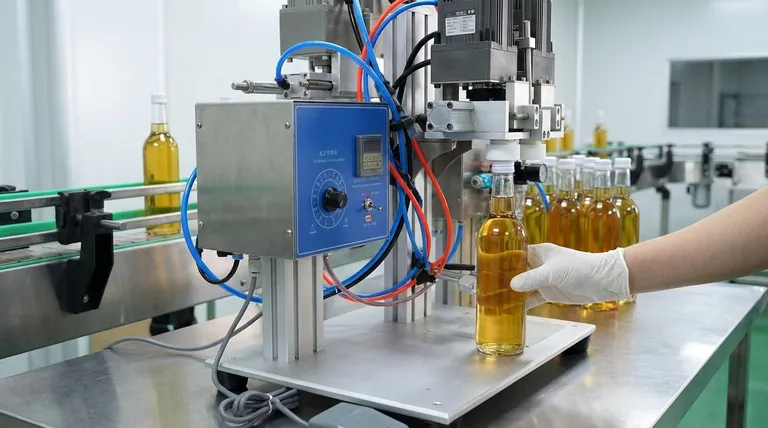
Matching Machine Technology to Cap Type
A capping machine is not a one-size-fits-all device. Different closure types require fundamentally different mechanical actions to apply them correctly. Understanding this relationship is the first step in selecting the right equipment.
Screw Caps (Chuck and Spindle Cappers)
This is the most common closure type, used for everything from beverages to pharmaceuticals. The goal is to apply consistent torque to tighten the threaded cap.
Two primary technologies handle these:
- Chuck Cappers use a gripper (the "chuck") that descends, grabs the cap, and rotates it onto the bottle threads. They are known for extremely precise and repeatable torque application.
- Spindle Cappers use sets of spinning wheels or discs that make contact with the sides of the cap, rotating it as the container passes by. These are ideal for higher speed, continuous-motion applications.
Press-On / Snap Caps (Snap Cappers)
These caps, common on dairy products, snacks, and some pharmaceuticals, are secured with simple vertical pressure.
A snap capper uses a belt or a specialized press to apply consistent downward force, "snapping" the lid securely onto the container's rim without any rotation.
Corks and T-Corks (Corking Machines)
Used almost exclusively for wine, spirits, and some oils, corks require a unique process.
A corking machine first compresses the cork to a smaller diameter and then uses a plunger to drive it into the neck of the bottle, creating a tight friction seal.
Roll-On Pilfer-Proof (ROPP) Caps
ROPP caps are aluminum shells that are formed onto the bottle. They are dominant in the wine, spirits, and pharmaceutical industries for their excellent seal and built-in tamper-evidence.
A ROPP capper head descends over the blank cap. Pressure blocks hold the cap down while specialized rollers move inward to form the threads into the glass and create the perforated, tamper-evident band at the base.
Understanding the Trade-offs: Automation Level
Beyond the cap type, the most significant decision is the level of automation, which directly impacts speed, cost, and labor requirements. The references correctly identify three main tiers.
Manual Cappers
These are simple, handheld or benchtop devices. An operator manually places the cap on the container and uses the device to tighten or press it. They are best for home businesses, lab testing, or very small production runs.
Semi-Automatic Cappers
In a semi-automatic setup, an operator typically places the cap on the container and positions it in the machine. The machine then automatically performs the tightening or sealing cycle when activated. This offers a major boost in consistency and speed over manual methods and is a common choice for growing businesses.
Fully Automatic Cappers
These machines are integrated into a production line. They automatically sort caps from a bulk hopper, deliver them to the container, and apply them without any operator intervention. These systems are essential for high-volume manufacturing where speed and repeatability are paramount.
Making the Right Choice for Your Production Needs
Your decision should be guided by your product, production volume, and budget.
- If your primary focus is low-volume production or product development: A manual or benchtop capper offers the lowest entry cost and the flexibility to test different closures.
- If your primary focus is scaling with moderate investment: A semi-automatic machine provides the best balance of speed, seal consistency, and cost for a growing operation.
- If your primary focus is high-speed, high-volume manufacturing: A fully automatic, integrated capping system is the only way to meet throughput demands and ensure consistent quality control.
By first defining your closure type and production scale, you can confidently select a capping machine that serves as a reliable foundation for your operations.
Summary Table:
| Cap Type | Common Uses | Primary Machine Type |
|---|---|---|
| Screw Caps | Beverages, Pharmaceuticals | Chuck or Spindle Capper |
| Press-On / Snap Caps | Dairy, Snacks | Snap Capper |
| Corks / T-Corks | Wine, Spirits | Corking Machine |
| ROPP Caps | Wine, Spirits, Pharma | ROPP Capper |
| Automation Level | Best For | Labor Requirement |
| Manual | Low Volume, R&D | High |
| Semi-Automatic | Growing Businesses | Medium |
| Fully Automatic | High-Volume Manufacturing | Low |
Ready to Secure Your Bottling Line with the Perfect Capping Solution?
At HONESTBEE, we supply commercial apiaries and beekeeping equipment distributors with the robust, reliable capping machinery needed for high-volume honey processing and product bottling. Whether you require a semi-automatic system for a growing operation or a fully automatic line for maximum efficiency, our wholesale-focused operations provide the equipment to ensure consistent, leak-proof seals.
Let's discuss how we can optimize your packaging process. Contact our experts today for a personalized consultation!
Visual Guide

Related Products
- Semi-Automatic Pneumatic Bottle Capping Machine by HONESTBEE
- Semi Automatic Electric Bottle Capping Machine
- HONESTBEE Professional Benchtop Pneumatic Bottle Capping Machine Capper
- Automatic Inline Spindle Bottle Capping Machine for Honey Production
- Professional Water Cooled Induction Sealing Machine for Bottles and Containers
People Also Ask
- What are the main types of caps supported by bottle capping equipment? Threaded, Press-On, and Insertion
- What is the purpose of bottle capping equipment and what types are available? Professional Sealing Solutions
- What is the purpose of a bottle capping machine? Boost Efficiency and Ensure Product Integrity
- How does a bottle capping machine work? Unlock Efficient, Consistent Sealing for Your Production Line
- What is the function of a capping machine in honey packaging? Secure Your Product Quality and Shelf Life
- Which machine is used for sealing of bottles? Choose the Right Capper for Your Production Line
- How does a bottle machine work? Master the Automated Bottling Process
- Can you bottle honey right after extraction? Weighing Speed vs. Quality for Your Apiary
